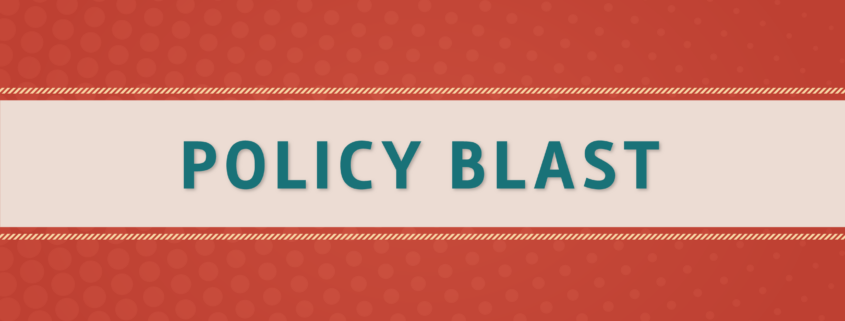Bipartisan Urban Indian Health Confer Act Introduced by Grijalva, McCollum and Cole
This bipartisan legislation will improve access to health care for urban Indians.
On September 10, 2021 the Urban Indian Health Confer Act was introduced by Chairman Raúl M. Grijalva (D-AZ), Rep. Betty McCollum (D-MN), Rep. Tom Cole (R-OK), Rep. Don Young (R-AK), Rep. Karen Bass (D-CA), and Del. Eleanor Holmes Norton (D-DC). As an ongoing effort to rectify longstanding parity issues within the Indian health system, this legislation would require agencies and offices within the U.S. Department of Health and Human Services (HHS) to confer with Urban Indian Organizations (UIOs) on policies and initiatives related to healthcare for urban American Indians and Alaska Natives (AI/AN).
The National Council of Urban Indian Health (NCUIH) has long advocated for the importance of facilitating confer between numerous federal branches within HHS and UIO-stakeholders without any resolve. Currently, only the Indian Health Service (IHS) has a legal obligation to confer with UIOs. It is important to note that Urban Confer policies do not supplant or otherwise impact tribal consultation and the government-to-government relationship between tribes and federal agencies.
“Agencies have been operating as if only IHS has a trust obligation to AI/ANs, and that causes an undue burden to IHS to be in all conversations regarding Indian Country in order to talk with agencies. It is imperative that UIOs have avenues for direct communication with agencies charged with overseeing the health of their AI/AN patients, especially during the present health crisis,” said NCUIH CEO, Francys Crevier (Algonquin).
“HHS’ failure to communicate with UIOs about healthcare policies that impact urban Indian communities is inconsistent with the federal trust responsibility and contrary to sound public health policy. The Urban Indian Health Confer Act will establish direct communication for UIOs across the entire department and ensure that urban Indian communities are aware of healthcare policy changes,” said Chairman Raúl M. Grijalva (D-AZ).
Support for confer with UIOs is strong among stakeholders in Indian Country. Recently, the National Congress of American Indians (NCAI) passed a resolution to “Call for the U.S. Department of Health and Human Services Secretary to Implement an Urban Confer Policy Across the Department and its Divisions.” NCUIH is grateful for the support of NCAI and Indian Country and commends Chairman Raúl M. Grijalva (D-AZ), Rep. Betty McCollum (D-MN), Rep. Tom Cole (R-OK), Rep. Don Young (R-AK), Rep. Karen Bass (D-CA), and Del. Eleanor Holmes Norton (D-DC) on taking bold action to resolve this parity issue for UIOs in the I/T/U system.
Background
Urban Confer policies are a response to decades of deliberate federal efforts (i.e. forced assimilation, termination, relocation) that have resulted in 70% of AI/AN people living outside of Tribal jurisdictions, thus making Urban Confer integral to address the care needs of most AI/AN persons.
The Urban Indian Health Confer Act will ensure the many branches and divisions within HHS and all agencies under its purview establish a formal confer process to dialogue with UIOs on policies that impact them and their AI/AN patients living in urban centers. In fact, absent a confer policy, several agencies within HHS continue to reject repeated attempts to convene with UIOs and agencies to discuss critical urban Indian health issues. Such blatant disregard to communicate with UIOs is not only a failure to urban Indians and is inconsistent with the government’s responsibility, but it is contrary to sound public health policy. The bill would codify the intent of the Federal Trust Responsibility to ensure equitable health care access to AI/AN by amending legislative text in Section 514, Subsection (b) of the Indian Health Care Improvement Act (25 U.S.C. § 1660d) (IHCIA).






Leave a Reply
Want to join the discussion?Feel free to contribute!